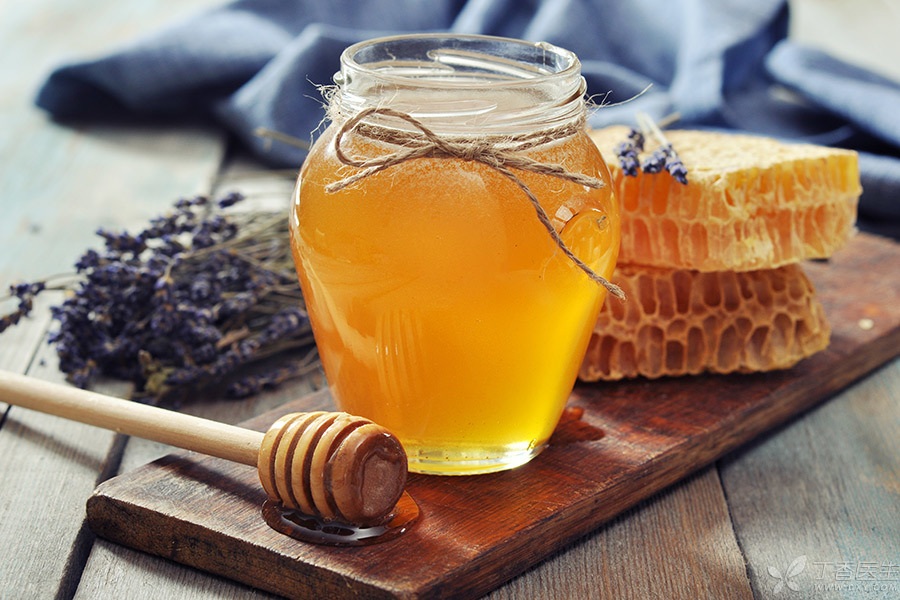
Now more and more people begin to pay attention to child-rearing, and Dr. Clove can receive various questions from readers every day:
Are babies with two spins on their heads smarter?
Can my baby eat honey?
How many clothes is better for the baby?
… …
Dr. Clove answered one after another, but he could not finish it.
All right, let’s have a big gathering today, with 20 common sense of parenting. Parents can see enough at one time.
1. The spins on the head have nothing to do with intelligence.
The whirl on the head is the direction of hair growth. Everyone may be different and there is nothing special about it.
The direction of hair growth should be used to determine intelligence, so the baby will not do it.
2. Don’t eat honey until your baby is 1 year old.
As honey may be contaminated by botulinum toxin and may contain botulinum toxin, the intestinal tract of babies before the age of 1 is relatively fragile and easy to be poisoned.
For a 1-year-old baby, it is really his honey and my poison.

3. Rush milk powder, drain water before adding powder.
When flushing milk powder, you should first measure a certain amount of warm water (about 40 ~ 60 ℃), then add the corresponding amount of milk powder and mix well. The milk powder washed out in this way is not easy to agglomerate.
4. Don’t drink milk until your baby is 1 year old.
The proportion of protein in milk is quite different from that in breast milk. The proportion of minerals is too high, which makes it difficult for babies to digest and absorb and will cause extra burden to the kidneys. Therefore, do not give milk to babies under 1 year old.
5. Babies who give birth smoothly will not be smarter.
Some people think that a clamping of the birth canal can make the baby smarter. Ding Ma is surprised. If a clamping of the door is used, the effect is not the same.
The baby’s intelligence has congenital heredity and acquired environmental factors. Instead of struggling with how to give birth, it is better to think about how to raise it.
6. The baby blows his nose and cannot pinch both noses together.
If the two noses are pinched together when blowing the baby’s nose, it is easy to cause excessive air pressure in the nose and air flow into the ears, which may cause otitis media, even tympanic membrane perforation and hearing damage.
The correct approach is to cover your nostrils with paper towel, then pinch one nostril, blow your nose on the other side, and blow your nose on the other side after blowing.
7. There are not so many food taboos during lactation.
There are not so many dietary taboos during lactation. Generally speaking, family members can eat as well as themselves.
However, the amount of caffeine (including coffee, tea, chocolate and other foods), sharks, sailfish, mackerel, square head fish and other fish with high mercury content should be required. In addition, alcohol should also be avoided as much as possible.

8. Most of the time, the baby is not constipated, but [saved belly]
Some babies are born 3 ~ 6 weeks later, due to the improvement of digestion and absorption capacity, food digestion is thorough, food residue is reduced, and poop is also reduced. As long as the baby’s stool is soft, in good spirits, and can eat and sleep, there is no need to worry too much.
9. Don’t feed water to the baby 6 months ago.
The size of the baby’s intestines and stomach is limited. If you drink too much water, you will drink less breast milk or formula milk, which may affect the normal growth and development of the baby.
Generally speaking, babies under 6 months old can get enough water from breast milk, formula milk or unless the doctor says they want to feed water, no additional supplement is needed.
10. For the first bite of supplementary food, you should eat food with high iron content and rich nutrition.
When the baby is 6 months old, the iron reserves in the body are almost consumed. Therefore, it is recommended to add the first supplementary food with high iron content, such as iron-fortified rice flour and red meat paste (such as pork paste and beef paste) made into paste.
11. The baby’s meal is best cooked alone to cultivate a light taste.
For babies under 1 year old, salt, monosodium glutamate, soy sauce and other seasonings do not need to be added to the supplementary food, while for babies over 1 year old, seasonings should also be added less to cultivate children’s light taste, which is conducive to reducing the risk of hypertension and cardiovascular and cerebrovascular diseases in the future.

12. Babies under 1 year old are not recommended to learn swimming.
For babies under 1 year old, when [learning to swim], they are only playing with water and cannot [learn] swim.
The collar provided by the swimming pool may damage the baby’s neck. If the disinfection fails, the water or towel in the swimming pool may irritate the baby’s skin or cause disease infection.
13. The most worthwhile investment in child safety measures is in child safety seats
No matter whether the child is sitting in the arms of his parents or using a safety belt, it is not a reassuring choice. In case of traffic accidents, children without safety seat protection are easily injured.
Children under the age of 13 should sit in the child safety seat in the back seat of the car, and the safety seat should choose the appropriate style according to the age of the child.
14. Feed your baby and don’t change sides frequently.
When feeding the baby, let the baby drink almost one breast and then change the other. In this way, the baby can drink both the front milk and the back milk in the milk, and the nutrition is balanced.
15. The common cold can be fed
Mother caught a cold, milk will not let the baby catch a cold. Moreover, the baby can obtain the antibody in the mother’s body through milk, which is also good for the baby’s health.
However, care should be taken to wash your hands and wear a mask before nursing and holding the baby.

16. It is normal for babies to spit milk.
Babies under 1 year old, due to gastric physiological structure and other reasons, it is easy to vomit milk. This is normal, if the baby does not have any uncomfortable performance, eat soundly and sleep well, treasure parents need not worry too much.
17. The time span for the baby to have teeth is relatively long, so don’t worry about not having teeth on time.
For different children, the time and sequence of teething are quite different. As long as the baby has teething before the age of one and a half, there is no need to worry.
18. Vaccines at one’s own expense, if you have money, go and get
This is not to say that the type II vaccine at one’s own expense is worse than the type I vaccine free of charge. If the baby gets sick because he has not been vaccinated, he will not only have to spend money to cure the disease, but also the baby will suffer and the adults will be upset.
Therefore, for vaccines at one’s own expense, if you have money, go and fight.
19. Probiotics do not treat constipation
Probiotics have no therapeutic effect on constipation. Only when babies have diarrhea and take antibiotics can they be taken in an appropriate amount under the guidance of doctors.
Baby constipation, or need to increase the dietary fiber in the diet, develop the baby’s good defecation habits. If constipation is very serious, can be treated with drugs under the doctor’s treatment.
20. No pillow is needed before the baby is 1 year old.
Babies before the age of 1, whether lying on their back or on their side, have their heads and bodies on the same horizontal line. They do not need pillows at all, but they are uncomfortable with pillows.
After the age of 1, the baby, whether to use pillows or not, has to listen to his own, he feels comfortable to use, uncomfortable don’t force.
